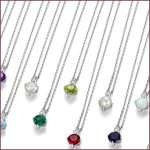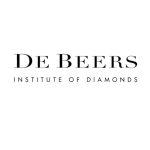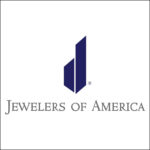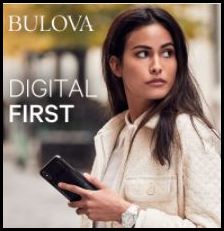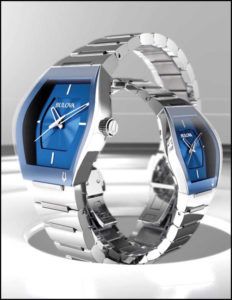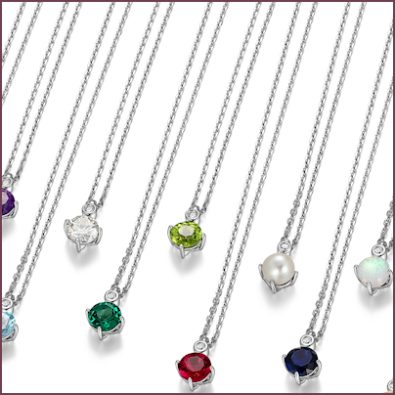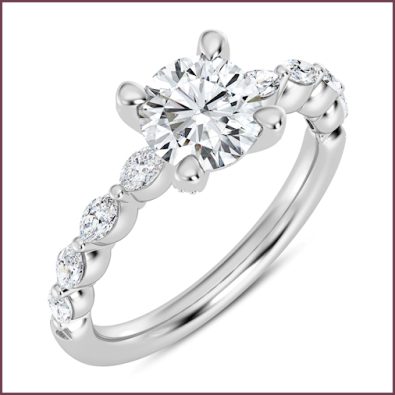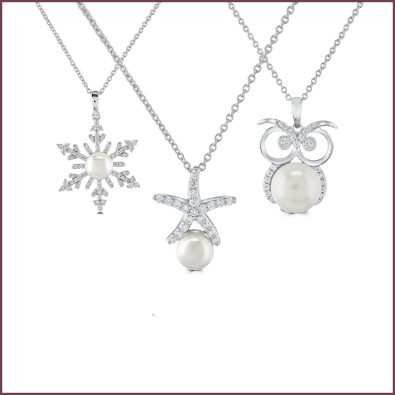Digital First Means Customers First
What does it mean to be digital first? A digital-first mindset aligns with a customer’s first approach of embracing the digital tools available to be accessible in the many ways consumers want to engage.
The aim is to keep things easy and seamless for customers. For Citizen Watch America, it means being agile and data-driven, says Regina Fiedel, vice president of digital marketing for the Citizen and Bulova watch brands in the U.S., who delved into the topic in a Plumb Club podcast in March.
“Keep an ear to the ground and a finger on the pulse of what’s happening outside. Be flexible, open to new ideas, and embrace digital tactics,” Fiedel advocates. “From the execution level to the staff on the ground, the organizational structure needs to embrace trying new ideas. For jewelers, this means keeping communications open for all employees. Using the workplace to experiment, to see what works.”
 Leverage Digital Tools
Leverage Digital Tools
Use digital tactics as an effective, measurable way to inform, engage, and build customer relationships. “Brands and retailers can leverage digital tools and cloud-based platforms to create greater transparency and workflow efficiencies,” Fiedel encourages. “Collaborate using programs like OneDrive, Teams, and SharePoint. Create online hubs of information using Google Docs and Sheets.
Online project planning flow tools like Basecamp, SmartSheet, Asana, Hygger, and Monday may be critical to success for larger organizations. Communicate with your team using apps like Slack, Google Chat and Teams. Use appointment booking tools like Acuity Scheduling and Calendly to stay connected with staff and customer meetings. A data access management platform and product information system help keep teams organized.”
Brands and retailers can use similar tools to communicate directly with their customers and gather feedback and data to understand what products and services are resonating. What are the products that get the most response and why? What are the benefits that provide the most value? What makes your brand/store unique?
“Direct feedback is the best way to understand and play to your strengths,” says Fiedel. “Make it easy to solicit feedback from consumers. Send short surveys to your customer list with Google Surveys, Survey Monkey, and Typeform. Add a survey poll to your website or do quick polls on Facebook or Instagram Stories to get quick feedback that gets engagement. More than anything, feedback gathering shows consumers you’re listening and care about their opinions.”
Introduce, Engage, Convert
The roadmap to success varies brand-to-brand and retailer-to-retailer, Fiedel says. The most important thing is to try different things!
What might be the right approach for your brand and store might not be for another. “It all comes down to the consumer and how we can create an easy, frictionless path to discovery and purchase,” advocates Barbara Garces, chief digital officer for Citizen Watch America, who joined Fiedel on the podcast.
The customer journey and how it affects consumer targeting and the overall content strategy has become multi-faceted and critical to success. “This means that we need to create content appropriate to the platform channels and our brand,” says Fiedel. “It’s important to understand the customers you are going for. Brands need to shift from static advertising to brand storytelling. A lot of content is needed to get the job done.”
It’s critical to take a multi-phase approach, Garces says. “Introduce, engage, and ultimately convert the consumer.” She describes that during the awareness phase, brands/retailers should look to reach as many people as possible. “You’re not trying to drive ROI, but rather create brand awareness to a larger audience.”
Garces says brands must be creative to introduce themselves to acquire new customers. “This could be a video and another introductory type of imagery and text that gives a great first impression. An awareness-driven campaign can run across various channels, including YouTube, Facebook, and Instagram, and through websites and display advertising.”
During engagement, Garces says, you’re looking at the likes, comments, shares, and clicks to drill down more into who is genuinely interested in the brand and shopping opportunity. Once you capture someone’s attention, be ready to move that customer down the path to purchase, Fiedel says.
Garces says this is where you create more tailored messaging to multiple targeted audiences. “You need to define who these audiences are upfront using existing customer insights and data and targeting tools available across various marketing platforms, including email, social media, and digital advertising. An example might be recently engaged women or past website visitors and purchasers. Once you segment your audience into a specific target group, you want to tailor specific messaging to engage them at a deeper level.”
Garces says there are many ways to turn an engaged shopper into a converted customer, whether online or in-store. Since so many shoppers research online and buy in-store, it’s critical at this stage to have product-level content that educates and informs on the website, the brand’s digital flagship.
“Aftercare, product registration, repairs, encouraging ratings and reviews, offering great customer service and incentives for loyalty — many of these tactics are done well offline,” says Garces. “The advantage to bringing this on digitally is the ability to connect the dots to track their success and, most of all, make things seamless for customers.”
You look at a return on investment when you reach the conversation phase. The loyalty part of the journey, says Garces, is critical to keeping people as lifelong customers. “The repeat customer has a great affinity for the brand and advocates on its behalf. So we keep up communications and relationships at our digital flagship.”
Determine what your goals and priorities are, suggests Fiedel. “Perhaps employ a local digital marketing company with similarly sized clients and know how to drive results best. Or maybe you found a channel like Facebook that works for your company. Have someone on staff that can dedicate time to posting.”
Virtual Appointment Success
The global pandemic forced the jewelry industry to try new things to connect with consumers. Garces says a big success story has been virtual appointments. “The beauty of virtual appointments is that they can simulate the in-store experience well. This area has seen greater engagement with many consumers working from home.”
Use the booking tools mentioned (Acuity Scheduling and Calendly); jewelers allow customers to pick a time. These apps automatically send reminders and allow for cancellations and rescheduling.
Make sure to include a form asking several questions that will allow you to prepare for your virtual meeting:
– What is the customer looking for?
– Do they have something specific in mind or no clue?
– Are they shopping for themselves or someone else?
– Do they have materials/styles/sizes/colors/designs in mind?
All of this information can help jewelers curate items before the appointment.
Then, get the camera ready, Fiedel encourages! Check audio/mic and video/camera. Practice with various angles. Include your logo or a branding element in the background to add polish and professionalism. After the virtual appointment, follow up. If a purchase was not made, recap the products presented and include a post-appointment survey for feedback on the experience.
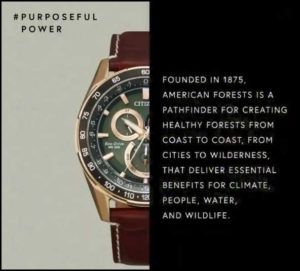 “A winning strategy leans both on the brands you carry to provide great content for your site and social, as well as creating local, relevant content yourself,” says Jeffery Cohen, president of Citizen Watches America. “One way to use localized content is encouraging your customers to tag your store’s social handle and use your #hashtag. Social media is an amazing way to talk directly to potential consumers. Jewelers can quickly and easily communicate any new arrivals, promotions, and events, to name a few. With all this communication, creative assets are essential; brands understand this. We’ve prioritized providing creative assets to retailers, who should not be afraid to dive in. It’s up to jewelers to take advantage of these assets by creating their own email and social media programs that integrate them to reach current and prospective customers.”
“A winning strategy leans both on the brands you carry to provide great content for your site and social, as well as creating local, relevant content yourself,” says Jeffery Cohen, president of Citizen Watches America. “One way to use localized content is encouraging your customers to tag your store’s social handle and use your #hashtag. Social media is an amazing way to talk directly to potential consumers. Jewelers can quickly and easily communicate any new arrivals, promotions, and events, to name a few. With all this communication, creative assets are essential; brands understand this. We’ve prioritized providing creative assets to retailers, who should not be afraid to dive in. It’s up to jewelers to take advantage of these assets by creating their own email and social media programs that integrate them to reach current and prospective customers.”
